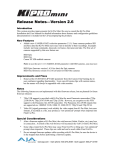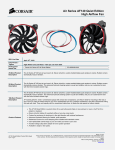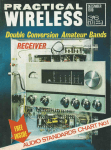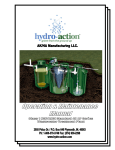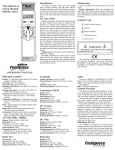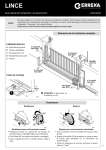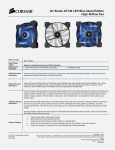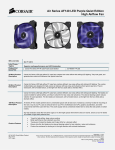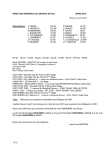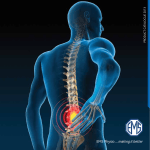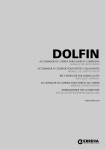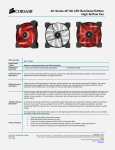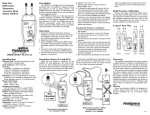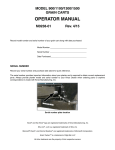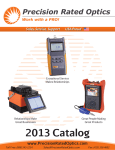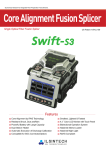Download Operation & Maintenance Instructions for the Automatic Feed/Retriever
Transcript
Operation & Maintenance Instructions for the Automatic Feed/Retriever Manufacturers of Quality Sewer & Drain Cleaning Equipment since 1957 www.MyTana.com 651-222-8228 746 Selby Ave • St. Paul MN, 55104 fax: 651.222.1739 Factory Direct Customer Service M –F 7am – 5pm CST Competent • Polite • Clear Parts Breakdown for the MyTana Autofeed/Retriever Qty Per Unit Part # Description Front disc 1 AF111 Drive pin 3 AF101 Rear disc 1 AF112 Spring retainer 3 AF102 Mounting bracket 1 AF113Spacer 6 AF103 Hand knob 1 AF114 Short housing 2 AF104 Movement assembly 1 AF115 Lower piston(solid) 2 AF104P Movement stop pin 1 AF116 Thrust bearing 2 AF105 Upper end plate 1 AF117 Thrust race 4 AF106 Long(top) housing 1 AF118 Spacer plate(s) 8 AF107 Upper piston(hollow) 1 AF119 Lower end plate 2 AF108Spring 1 AF120 Conical spring 1 AF109 Pressure pad 1 AF121 Plastic knob 1 AF110 Drive wheel (bearing) 3 AF122 Outlet Collar 1 Part # Description AF100 Qty Per Unit AF103 AF121 AF112 AF110 AF113 AF101 AF105 AF102 AF113 AF106 AF122 AF111 AF104 AF115 AF109 AF120 AF114 AF108 7 11 AF100 AF AF107 16 1 AF 17 1 AF AF118 AF119 2 Installing the Auto Feed onto your machine: Step 1 Pull the top two bolts (that hold the top cylinder in place) back flush with the backplate of the auto feed. Step 1 Attach the auto feed by hooking the silver bracket at the back of the feed onto the bottom flange of the front casting of your sewer machine. Pull upward on the auto feed so that the top bolts line up with the holes on the front of the front casting (where toggle switch is mounted). Step 1 Secure the auto feed into place by threading the bolts into the threaded holes. Step 1 If the silver bracket needs to be adjusted upward for a secure fit, loosen the bottom two bolts that hold the bracket in place and slide the bracket upward. The bracket has adjustor slots. Retighten bolts. Spacers The spacer plates at the bottom end of the lower two cylinders determine the proper space to maximize the grip of the drive wheels on your cable. Normally, the correct spacing is preset for the cable you will be using. However, double-check to make sure (see chart below). Should you need to adjust spacers, make sure that the drain hole on the bottom end plates are in the most downward position to maximize drainage. (see schematic on page 5) 4 spacers Cable Spacers Size Required 5/16"0 3/8"1 13/32"1 1/2"2 9/16"3 11/16"4 3/4"4 2 spacers 3 General Operation Using the Automatic Cable Feed/ Retriever uNOTE: MyTana machines tend to push cable forward, out of the machine. For this reason, we recommend manually feeding the cable into sewer lines and manually cleaning the obstruction. 1. Disengage auto feed (by loosening screw knob on top cylinder) and insert cable into pipe opening several feet before turning on machine. Do not try to insert a spinning blade into a sewerline! 2. If you choose to use the auto feed for pushing cable into the sewer line (see “Note” above), move the feed lever about 10 degrees toward the “F” and turn on your machine. Turn the screw knob on the top cylinder to the right until the cable starts to move forward. Do not tighten the knob more than is required to move the cable forward. Push lever fully into the forward position. uProceed with caution, keeping in mind that it is essential that the cutting blade not be forced through an obstruction using the forward force of the auto feed! 3. When your blade finds an obstruction it will usually stop the rotation of your cutting blade. If the blade does not release after several seconds of torque by moving the auto feed lever to the “R” (reverse) position, read instructions from your machine user manual for releasing a stuck blade. The most efficient cleaning is achieved by learning how to use torque build-up in your cable without over-torquing to the point of damaging cables or blades. If the cable resists going forward or backward than one of several things is occurring: A. You are hitting an obstruction. However, if torque does not start to build, you may be at an elbow or the blade may be hitting an offset or break in the sewerline. Apply some forward pressure manually to help you figure out what it is there. B. The feed wheels are worn and need replacing. C. There is debris hanging onto the end of cable and blade that is resisting retrieval. In this case manually help the auto feed pull the cable back into the reel, clear blade of debris and run cable through sewerline again to make sure all blockages are removed. 4 4. When the obstruction is removed, place the auto feed/ retriever fully in the “R” position until you hear the blade nearing the pipe opening. Disengage feed (by turning screw knob to the left) shut off machine and pull the blade out of the pipe opening. The following tips will add life to your cable, blades and Auto Feed/Retriever. Avoid turning down the screw knob on top cylinder of feed too tightly. This causes excessive wear on cable and, if extreme pressure is applied, can impede the proper rotation of the cable through the auto feed. The will cause the cable to stack loosely into the reel, rather than snugly against the outer walls as it should. Over tightening can also break feed wheels. Do not run cable fittings (i.e. couplings, splicers, cable ends) through a tightened down auto feed. Again, this can break feed wheels. Release the feed, pull fittings through manually and then re-engage. Turn screw knob only as far as needed to move cable back or forth. Lubrication Routine Maintenance As with any mechanical device, proper care will maximize the life of your MyTana automatic feed/retriever. Keeping it clean and properly lubricated is essential. Watch for wear on drive wheels (bearings) and drive pins. The feed unit has been greased at the factory. However, routinely continue to grease all housing equipped with zerks (grease fittings). Remove front disc periodically, clean and lubricate. Free movement of the front disc is crucial to proper movement of cylinders and drive wheels. Make sure drive pins stay in designated slots on movement disc. Remove debris (i.e. rags, string, hair) from cable before running through the feed. This kind of debris can clog up the feed wheels and movement parts rather quickly. If feed will not used for a period of time, lubricate before storage. Replacing Drive Wheels (Drive Bearings) 1. Remove auto feed from machine 2. Remove six acorn nuts and lockwashers AF113 3. Remove front disc and movement assembly 4. Slip cylinder housing (whichever one that needs new drive wheel) from hex bolts AF110 AF113 AF112 AF111 5. Remove piston from housing (it will lift out of housing) 6. 6. Remove clip spring that holds drive pin 7. Carefully pull out drive pin 8. Remove spacers and drive wheels 9. Clean all parts in cleaning solvent before reversing procedure to install new drive wheel(s) uNOTE: While installing new drive wheels, take the time to clean up cylinder housing. There are thrust bearing (and two races) at the bottom of each cylinder that need to be cleaned periodically. These parts can be accessed by removing the spacer plates and end cap at the bottom of the housing. AF112 AF110 Figure 7 AF113 AF113 AF111 5





